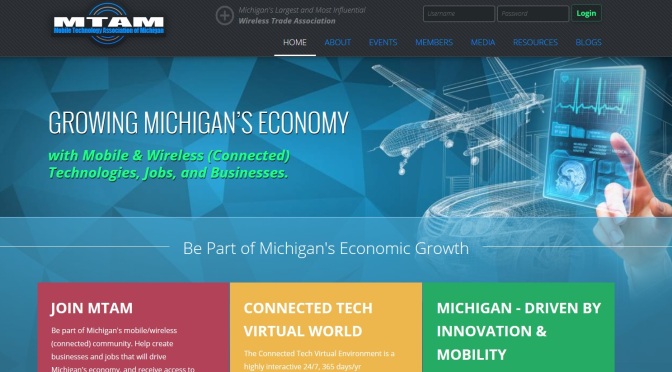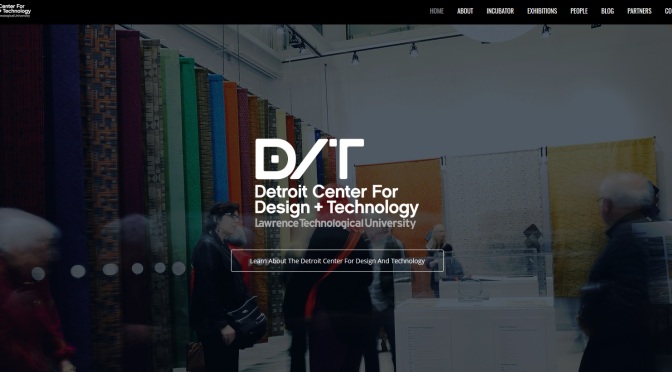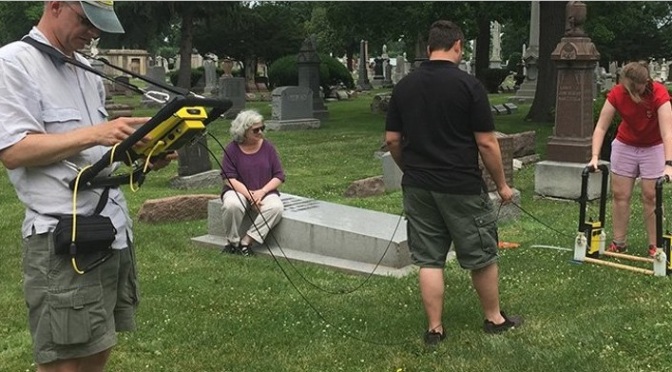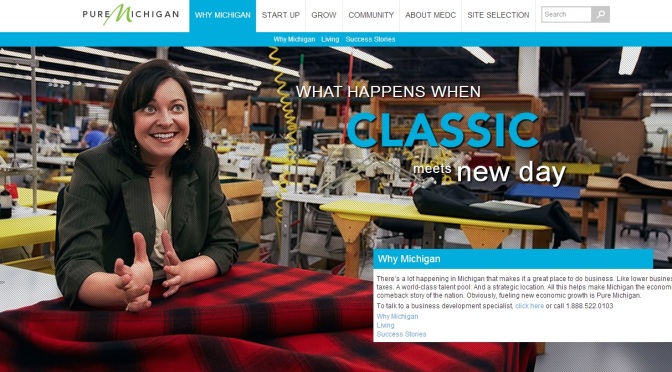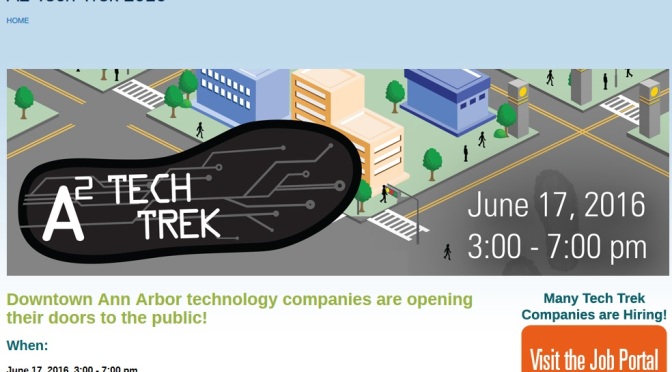DETROIT — The Mobile Technology Association of Michigan announced that it is seeking to expand the number of participants in its volunteer group who assist with planning for its chapters in Detroit, Grand Rapids and Lansing. Continue reading Mobile Monday Michigan seeks volunteer organizers
Category Archives: Uncategorized
Business expansions gain state aid
LANSING — Three business expansions that will generate more than $40.7 million in total investment and create 349 jobs in Oakland County have received Michigan Strategic Fund approval for support, the Michigan Economic Development Corp. announced.
Third class of ‘Hacker Fellows’ to interview with startups at LTU’s Detroit Center
DETROIT — Hacker Fellows, a program of Invest Detroit Ventures, has began to match its 2017 class of 15 young software developers to early-stage, tech-based companies in Michigan.
Having completed the Hacker Fellows year-long fellowship program, these 15 developers are soon to be hired full-time by Michigan startups, advancing Michigan’s tech ecosystem, and furthering the mission of retention of talented graduates of Michigan’s universities.
Thanks to the recent financial support of the Michigan Economic Development Corp. (MEDC), the Community Foundation of Southeast Michigan (CFSEM), and the Ford Motor Co. Fund, Hacker Fellows is soon to kick off its third year of training, mentoring and supporting recent graduates in launching successful careers with startups.

“The importance of developing our technology talent in the region cannot be understated. The Hacker Fellows program is a critical to this effort,” said Don Jones, associate director at CFSEM, which recently committed an additional $550,000 in funding to Hacker Fellows over two years.
On Friday, April 7 from 9 a.m. to 6 p.m., Hacker Fellows has invited its 15 current fellows to in-person interviews with more than 30 startups from across the state. Each fellow will have the opportunity to interview with five to seven companies in hopes of receiving a full-time offer. The interviews will take place at Lawrence Technological University’s Detroit Center for Design + Technology (DCDT), 4219 Woodward Ave.
Once all 15 fellows have received full-time offers, the true Hacker Fellows experience begins in Detroit, with a five-week software and entrepreneurship boot camp at DCDT. Following the five weeks of training, each of the Hacker Fellows goes to work at their paired startup, where they receive a $10,000 to 15,000 grant to boost their first-year salary. Beyond the salary boost, each fellow receives ongoing support from the Invest Detroit Ventures team throughout the year.
“The 2016 Hacker Fellows boot camp focused on front end technologies — specifically Angular JS, Node JS along with HTML and CSS — all technologies I had a strong interest in learning about,” said Jessica Wu, a 2016 Fellow now working for NewFoundry, an Ann Arbor design and software development firm. (The entire 2016 cohort is pictured below.)
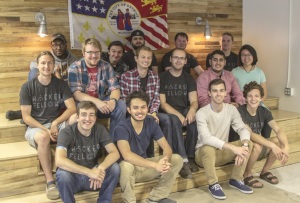
Added Bradley Hoos, Hacker Fellows executive director: “There’s a huge need for top tech talent in Michigan and it’s been really exciting to see Hacker Fellows become the go-to source for young startup developer talent. The raw talent of our fellows is really impressive and once they are aware of the great things happening in the Michigan startup community, they are choosing to be a part of it. In fact, 13 of our 15 2016 fellows told us that they would have left the state if it weren’t for Hacker Fellows. That’s powerful.”
Hacker Fellows’ goal is to attract and retain top developers in Michigan and pair these developers with early stage tech startups. In the first two years of the program, more than 70 Michigan startups have engaged with and interviewed Hacker Fellows. All 2015 and 2016 Hacker Fellows accepted positions at Michigan startups, with Fellows joining the program from 14 different universities and working at 21 different Michigan tech startups. Since working with Hacker Fellows, participating startup companies have created more than 160 jobs.
Hacker Fellows is free for participating Fellows and startups thanks to the generous support of sponsors CFSEM, MEDC, and the Ford Motor Co. Fund.
The Hacker Fellows program has an open application period year around, and officials say they’re always interested in interviewing passionate and talented developers. If you’re interested in applying, visit this link.
Visit http://www.hackerfellows.com/matchmaking-introduction/ to hire a Hacker Fellow.
More information at www.hackerfellows.com, including the latest on free and open meetups. Follow Hacker Fellows on Facebook, Twitter and Instagram as well.
Invest Detroit is a certified Community Development Financial Institution and a source of private sector financing which uses a variety of funding tools through managed for-profit and non-profit targeted funds to support economic and community development in underserved communities, primarily in the City of Detroit.
Representing $225 million in funds, committed capital and New Markets Tax Credit allocations, Invest Detroit serves as a platform to meet a broad range of financing needs to support business expansion and real estate development, the creation and retention of jobs, and the revitalization of distressed areas.
Invest Detroit represents the vision of the Board of Directors and management of the Detroit Investment Fund, which was created and funded in 1995 by members of Detroit Renaissance, now known as Business Leaders for Michigan. In 2010, the DIF Board and management team enhanced and transitioned the capabilities of the DIF to create Invest Detroit, which serves as an umbrella entity for the DIF and other for-profit and non-profit managed funds.
Ford Offers Peek At Transportation In ‘City of Tomorrow’
DETROIT — Ford Motor Co.’s press conference at Monday’s opening Press Preview Days at the North American International Auto Show here offered a peek at its newest cars, trucks and vans.
But it was a whole lot more.
Executive chairman Bill Ford, CEO Mark Fields, and veteran journalist and public policy analyst Walter Isaacson gave a peek at the City of Tomorrow, which also happens to be the title of a daylong seminar Ford is co-hosting Monday in Detroit.
The event is an outgrowth of the Ford Smart Mobility initiative, which has Ford moving from merely an automotive producer to a provider of mobility products and services of all kinds, from car sharing to mass transportation.
Ford is sponsoring City of Tomorrow with The New York Times, TED, the nonprofit that sponsors seminars on arts, culture, and the economy, and Vice, a print magazine and website focused on the arts, culture, and news.
Bill Ford said the automaker is interested in the broader topic of mobility becuase of the challenges of pollution, climate change and urban gridlock, which will hamper economic growth — and therefore auto sales, but also the quality of human life. “We need the world’s best entrepreneurs” tackling these topics, he said, not just automakers. “There is no silver bullet, one size does not fit all.”

Ford’s press conference was held in a practically unrecognizable Joe Louis Arena, half of which was curtained off. The ice surface was covered in carpet, with big overstuffed leather chairs for Ford executives and VIPs and desks and chairs for the assembled crowd. A curtain blocked off half the arena, to which was attached a giant screen bearing perhaps the biggest Ford blue oval ever projected — at least 100 feet wide. The general public sat in the hockey arena’s upper deck. Perhaps 5,000 people attended.

During the car and truck part of the event, Ford executives rolled out a slightly redesigned Ford F150 pickup, America’s best-selling vehicle. They also announced the return of a midsized truck, bringing back the Ford Ranger nameplate in 2019. (The modernized Ranger is already the best-selling midsized truck in Europe, Australia and New Zealand, but for reasons unknown, Ford hasn’t sold it in the United States until now.) Ford also announced it’s bringing back a midsized four-wheel-drive vehicle with serious off-road capability under the Ford Bronco nameplate in 2020. Both the Ranger and Bronco will be assembled at Ford’s Michigan Assembly Plant in Wayne, good news for Ford’s Michigan work force and the state’s economy.
Ford also announced it would roll out 13 new electrified vehicles in the next five years, including a hybrid F150 and Mustang, two new hybrid police cars, a Transit Custom plug-in hybrid van, an all-electric small sport utility vehicle with a 300-mile range, and, by 2021, a fully autonomous electric vehicle.
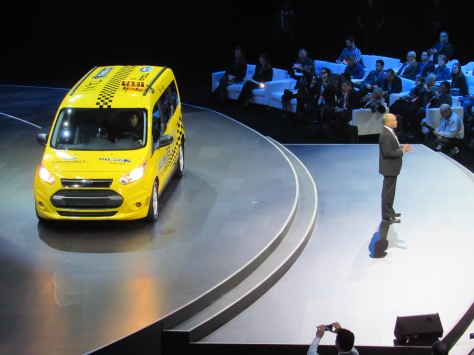
The company is also piloting wireless charging of EVs.
Ford officials noted that 90 percent of all traffic crashes in the U.S. are caused by driver error, and that vehicle autonomy will go a long way to reducing that figure. Ford also said that autonomous vehicles will bring mobility to the elderly and people with disabilities.
On the environmental front, Bill Ford said it was the company’s goal to produce cars with net zero carbon emissions, zero waste to landfills, zero net water use, and zero use of conflict minerals.
Federal Grant Helps OU Engineering Students
ROCHESTER HILLS — A $599,980 “Scholarships in Science, Technology, Engineering and Mathematics” grant from the National Science Foundation is helping Oakland University students pursue their career and educational goals in the fields of industrial and systems engineering and mechanical engineering.
OU received the grant four years ago to fund its product lifecycle management scholarship program, and the first group of PLM scholarship students are now graduating and beginning their engineering careers.
“The PLM scholarship program is more than just financial help,” said Russell Bauer, an ISE major currently working at Fiat Chrysler Automobiles. “It allows students to network and communicate with established professors within their fields. These professors can then assist students with projects, contacts, and most importantly, finding job experience.”
The PLM scholarship program provides scholarships to 32 academically talented, financially challenged students in ISE or mechanical engineering programs at Oakland University.
“Being just shy of the Presidential scholarship requirements at OU, the PLM scholarship has been instrumental in me balancing funding for my education and relieving some of the financial stress, allowing me to focus on excelling with my schoolwork,” Bauer said. “Over my four years at OU, I have received $4,300 a year from the scholarship, but the most valuable asset is still the connections I’ve made, which have led to job offers.”
According to the NSF, another goal of the PLM scholarship program is to enable students to graduate in four years with a Bachelor of Science degree, and upon graduation, be capable of entering the high technology workforce or continuing their education at the graduate level.
As part of the program, students are organized in cohorts and assigned faculty and industrial mentors, who assist the students in obtaining summer internships.
“We are extremely grateful to the National Science Foundation for awarding us this grant,” said Robert Van Til, Pawley Professor of Lean Studies and chair of the ISE department. “We are enjoying working with our PLM scholarship students to help them through our engineering programs. “Several of the students have told me that the scholarship has been very important in allowing them to enroll in, and remain at, Oakland University. It is exciting to see the first group of PLM scholarship students graduating and starting their careers in engineering. They have been highly sought after by several companies. Next year is the final year of the program, so unfortunately we are not awarding any new scholarships.”
For Bauer, the PLM scholarship program has already provided him with the connections needed to find his “dream job.”
“I am currently working at FCA on advancing technologies such as motion capture and virtual reality, to speed up the new vehicle launch process,” he said. “The ergonomics side of ISE has introduced me to the motion capture side of work, while the PLM side of ISE has given me a lean manufacturing knowledge set which is sought after in the industry.”
For more information on Oakland University’s engineering programs, visit http://www.oakland.edu/secs.
Oakland University is a doctoral research university located on 1,443 acres in Rochester Hills and Auburn Hills. The university has 132 bachelor’s degree programs and 138 graduate degree and certificate programs. Academics include programs in the College of Arts and Sciences, School of Business Administration, School of Education and Human Services, School of Engineering and Computer Science, School of Health Sciences, School of Medicine and School of Nursing.
Michigan Tech helping in search for historic labor artifact
HOUGHTON — It all began with the labor movement’s fight for an 8-hour work day.
In Chicago’s Haymarket Square in 1886, a peaceful demonstration turned deadly when a bomb was thrown. In the chaos that followed, panicked police started shooting indiscriminately, killing seven of their own officers and at least four workers. In the wake of the Haymarket Riot, eight members of the labor movement were arrested. After a questionable trial, seven of the leaders were sentenced to hang. Two sentences were commuted by the governor, and one defendant committed suicide in jail, while four men were hung. While the public outrage at the violence created a “red scare” in the United States that set back the cause of the eight-hour day, the martyring of innocent labor leaders galvanized union organizers around the world. May Day celebrations around the world still commemorate those executed because of Haymarket.
Now, 130 years later, 21st century technology and a group of determined historians and archaeologists are bringing the historic Haymarket Affair back into people’s awareness. And Michigan Technological University industrial archaeologist Tim Scarlett is playing a small part.
Continue reading Michigan Tech helping in search for historic labor artifact
Comcast Launches X1 DVR with Cloud Technology in Michigan
PLYMOUTH — Michigan users of Comcast Corp. X1 cable TV service can now download programs they have recorded on their digital video recorder to watch on internet-connected devices like computers, tablets, and smartphones, or stream them using an Internet connection, anytime and anywhere.
The new service, called X1 DVR with Cloud Technology, also provides customers access to virtually their entire TV channel lineup on any connected screen, such as mobile devices and computers, in their home.
Continue reading Comcast Launches X1 DVR with Cloud Technology in Michigan
Next Michigan designation, business projects gain state apprroval
LANSING — Nearly $85 million in new private investment with up to 878 jobs, and an authorization to the city of Detroit to use incentives to further develop manufacturing and transportation districts, are among projects approved Tuesday by the Michigan Strategic Fund.
The Michigan Economic Development Corp. administers programs on behalf of MSF, and serves as the state’s marketing and business attraction agency.
At Tuesday’s meeting, the MSF board approved:
* City of Detroit–Next Michigan Development Corporation (D-NMDC): Detroit has received MSF approval as the state’s seventh and final Next Michigan Development Corporation. In ithis role, D-NMDC will seek to attract eligible businesses to key employment districts within the city, which have the greatest potential for growth in the industries of manufacturing, transportation, distribution and logistics. The NMDC designation grants the authority to offer tax incentives such as renaissance zones, real and personal property tax exemptions, and local development financing.
* FEV North America Inc., a subsidiary of German’s FEV Group, received a $1.2 million Michigan Business Development Program performance-based grant to support a $27 million tech center in Auburn Hills that will create 250 new jobs. The company currently employs about 500 people. FEV, founded in 1978 in Germany, is a powertrain and vehicle design engineering company. Michigan was chosen over a competing site in South Carolina. Auburn Hills is offering a property tax abatement in support of the project. Individuals interested in career opportunities with FEV should visit http://www.fev.com/careers/jobs-at-fev.html and select “USA.”
* Holland-based JR Automation Technologies LLC received a $2.2 million Michigan Business Development Program performance-based grant to build a $5.6 million new plant in Holland Township, creating 250 new jobs. JR designs and manufactures automated machinery to the automotive, medical, pharmaceutical, aerospace, construction, furniture, and food processing industries. Michigan was chosen as a result of a national search. Holland Township has offered support in the form of 12-year property tax abatement. For career opportunities with JR Automation, visit http://www.jrauto.com/Careers.
* The Hazel Park Brownfield Redevelopment Authority received MSF approval of $5,751,200 in local and school tax capture for the redevelopment of approximately 36 acres of land at the Hazel Park Raceway complex. Tri-County Commerce Center LLC plans to construct a 575,000-square-foot building on the site that will be designed to serve industrial tenants. The project is expected to generate $36 million in total capital investment and create 175 full-time equivalent jobs. The tax capture will be used toward the alleviation of brownfield conditions at the site, including demolition activities, lead and asbestos abatement, site preparation, and infrastructure improvements.
* River’s Edge Partners LLC received a $750,000 Michigan Community Revitalization Program performance-based grant to support a $10.4 million project that will convert a former steel fabrication plant and foundry on East Michigan Avenue in downtown Kalamazoo into office and collaborative work-incubator space. The completed project will include offices, retail space, a restaurant, fitness center, collaborative area, and an outdoor terrace facing Portage Creek. The project is expected to create 118 full-time equivalent jobs. In addition, the Kalamazoo Brownfield Redevelopment Authority received MSF approval for $742,930 in local and school tax capture for the project. The funds will be used alleviate brownfield conditions at the site and prepare it for construction, including asbestos removal, demolition, site preparation activities and infrastructure improvements. The Michigan Department of Environmental Quality is also supporting the project with tax increment financing in the amount of $47,030, a grant in the amount of $191,750 and a loan in the amount of $193,935. To view a video on the River’s Edge project, visit this link. https://www.youtube.com/watch?v=svAJ0ouTtHs.
* The city of Adrian was awarded $2,866,446 in Community Development Block Grant funds for the Strongback Four Corners Redevelopment Project in downtown Adrian. Strongback Properties LLC plans to redevelop three historic properties into commercial space, residential rental housing, and parking. The project is expected to generate more than $4.7 million in total capital investment and create eight to 10 full-time equivalent jobs. MSF also approved $392,375 in local and school tax capture for the Adrian Brownfield Redevelopment Authority to alleviate brownfield conditions at the site and prepare it for redevelopment.
* River Parc Place II LLC received a $636,860 Michigan Community Revitalization Program performance-based grant to support a $4 million renovation of an existing four-story building at 80 Washington St. in downtown Manistee into a mixed-use development. Built in 2006 as a residential condominium project, the building was never completed and is considered blighted by the city. Once completed, the building will consist of a mixed-use development with residential rental units and commercial space. The lakefront space will also be renovated to allow lake access boat slips for both public and private use. In addition, Manistee Brownfield Redevelopment Authority received MSF approval for $2,980,685 in local and school tax capture to be used toward alleviation of brownfield conditions at the site as well as six adjacent parcels and prepare them for redevelopment.
MSF also approved the following:
* Michigan Translational Research and Commercialization (MTRAC) Ag Bio Innovation Hub – $1 million in MTRAC funding to Michigan State University to serve as the MTRAC Ag Bio Innovation Hub supporting technology transfer from Michigan’s institutions of higher education, non-profit research centers and hospital systems for the commercialization of competitive edge ag bio technologies.
* Gatekeeper Business Incubator grant – $100,000 to Lawrence Technological University to provide support services and business advice to early stage technology companies in the Southfield and Troy areas.
* Procurement Technical Assistance Center (PTAC) Program grant – $100,000 in funding to the Flint and Genesee Chamber of Commerce PTAC to provide government contracting support to businesses in the city of Flint.
* Private activity bond financing – Approval of an inducement resolution for private activity bond financing of up to $4.5 million for the construction of a new building and acquisition of equipment in Bay County’s Monitor Charter Township for the F.P. Horak Co. and H & J Realty Co. LLC. The project is expected to create up to 71 jobs over a three-year period.
For more on the MEDC and its initiatives, visit michiganbusiness.org. For Michigan travel news, updates and information, visit michigan.org. Michigan residents interested in seeking employment with any of Michigan’s growing companies should check mitalent.org, where more than 99,000 jobs are currently available in a variety of industries.
Arbormoon Software Inc. releases “High Tech” A2 Tech Trek app
ANN ARBOR — Arbormoon Software Inc., in cooperation with Ann Arbor Spark, Friday released the A2 Tech Trek app, for the A2 Tech Trek Friday, June 17.
Available for both iOS and Android, this app adds another layer of “tech” to the Tech Trek with features highlighted by automated check-in via beacon technology.
The A2 Tech Trek, Friday from 3 to 7 p.m., offers a walking tour of downtown Ann Arbor technology companies, which have opened their doors to the public for the event. There are more than 50 participating companies. More at http://www.annarborusa.org/tech-trek.
Continue reading Arbormoon Software Inc. releases “High Tech” A2 Tech Trek app
Arotech Gets Grant For New Battery
ANN ARBOR — The Ann Arbor defense and security products developer Arotech Corp. (Nasdaq: ARTX) said it has received a $720,000 grant from Israel’s Office of the Chief Scientist toward research and development for its grid storage flow battery system.
The company said the grant will cover 40 percent of the planned R&D budget for the system in 2016.
Arotech’s iron-iron flow battery is intended to create an affordable technology that delivers a reliable on-demand supply of stored energy that accommodates the highly variable nature of renewable energy sources, acts as a back-up during power disruptions and also as a load-leveler for conventional power sources balancing between supply and demand.

